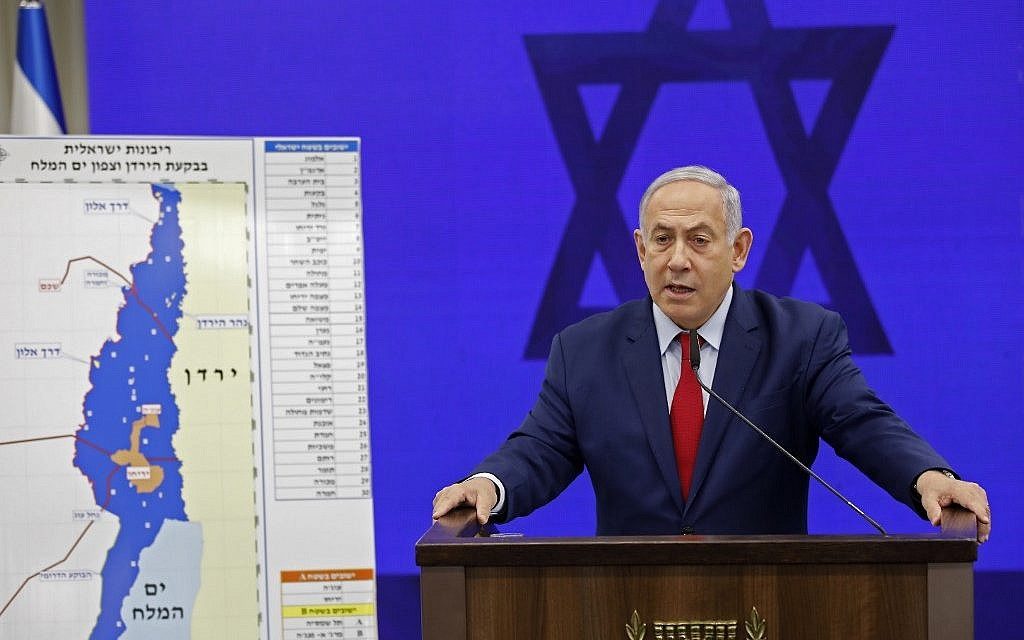Australia/Israel Review
Media Microscope: Poll Dancing
Oct 4, 2019 | Allon Lee

A certain level of campaign fatigue characterised the Australian media’s coverage of the Israeli election before and immediately after the result on Sept. 17.
UK Times’ Roger Boyes explained Israeli PM Netanyahu’s electoral appeal, arguing he resonates with “older Israelis [who] recall the fear that their children would be blown up while in a school bus or eating a pizza…the last Israeli death in a Palestinian suicide bombing was in 2008. Netanyahu became Prime Minister in 2009. That is the synaptic connection for many in the electorate and it may yet keep him in power,” Australian (Sept. 12).
Netanyahu’s campaign promise to annex the Jordan Valley on the West Bank was a big story for the Age/Sydney Morning Herald (Sept. 12). An Associated Press (AP) report noted Netanyahu’s announcement was “dismissed by opponents as election theatrics”. New York Times’ Karen Zraick’s analysis wrongly claimed Israel established settlements in the Jordan Valley after the 1967 War so “Jerusalem, the disputed holy city regarded by Israel as its capital, would be more central in relation to the rest of the country.” Actually, the Jordan Valley settlements were established as security outposts to prevent an attack from Israel’s east.
The Guardian (Sept. 13) said the plan reflects “just how warped Israeli politics has become [because] the main opposition coalition – Blue and White – were incensed not by the idea of annexing the Jordan valley but that Mr Netanyahu had not credited them with thinking of it first.” (Actually, Blue and White said Israel should keep the Jordan valley long-term, but did not support immediate annexation.)
The ABC invested a great deal of time on the election and deserves credit for interviewing a selection of analysts who were largely mainstream.
This included Israeli political scientist Professor Gerald Steinberg telling ABC RN “Breakfast” (Sept. 17) that most Israelis don’t view Jordan Valley settlements as illegal, support some kind of security presence there and, because there was never a Palestinian state, see the area as “disputed territory”.
Other mainstream voices included Israeli journalist Barak Ravid on RN Drive on Sept. 18 and on Sept. 19, AP correspondent Joe Federman on ABC RN “Breakfast, the Jerusalem Post’s Gill Hoffman on ABC Radio “AM and Aron Heller of AP on ABC TV “The World”, among others.
ABC RN “Religion & Ethics” host Andrew West (Sept. 11) said coalition negotiations collapsed in April over “the powers of the ultra-Orthodox Jewish parties in a coalition.” Israel-based Australian journalist Irris Makler’s accompanying report correctly noted it was a dispute over the drafting of ultra-Orthodox men into the Israeli army that precipitated fresh elections.
The program’s website (Sept. 16) ran a lengthy rant from one-stater and BDS supporter Na’ama Carlin who questioned Israel’s commitment to democracy, citing the impressive-sounding but baseless claim that over 65 Israeli laws discriminate against Palestinian citizens in Israel. She also asked, “What options are available to Palestinians when it comes to protesting against an occupying regime?” Maybe stop protesting and resume negotiations on an end to the conflict?
Middle East correspondent Eric Tlozek told ABC TV “The World” (Sept. 10) that during this election campaign Arab Israeli MKs have discussed a willingness to enter a governing coalition, which would be “a huge step… something historically… they have not done.”
In the Age/Sydney Morning Herald (Sept. 20), the New York Times’ Isabel Kershner noted that a unity government could see the Joint List, which is a coalition of Arab-majority parties, assume the mantle of Opposition, including “the right to speak directly after the prime minister… meetings with all visiting heads of state… monthly briefings from the Mossad.”
Doubtful that a post-Netanyahu Government would bring “the change that Israel needs”, the Guardian (Sept. 20), bemoaned the absence of the “conflict” during the campaign which “reflect[s] the country’s rightward lurch, with politicians seeking not a solution to the conflict, but ways to manage Palestinians.”
Maybe the rabidly genocidal Hamas’ ongoing stranglehold on Gaza and Palestinian Authority President Mahmoud Abbas’ rejection of then Israeli PM Ehud Olmert’s offer to create a Palestinian state in 2008, followed by Abbas’ subsequent abandonment of negotiations with Netanyahu, might have something to do with that?
An Economist editorial reprinted in the Australian (Sept. 21) considered the merits of a unity government, opining that “Gantz is experienced in military matters, having commanded Israel’s army, but is a political novice. He could benefit from working with Netanyahu.”
Tags: Australia, Israel, Media/ Academia






